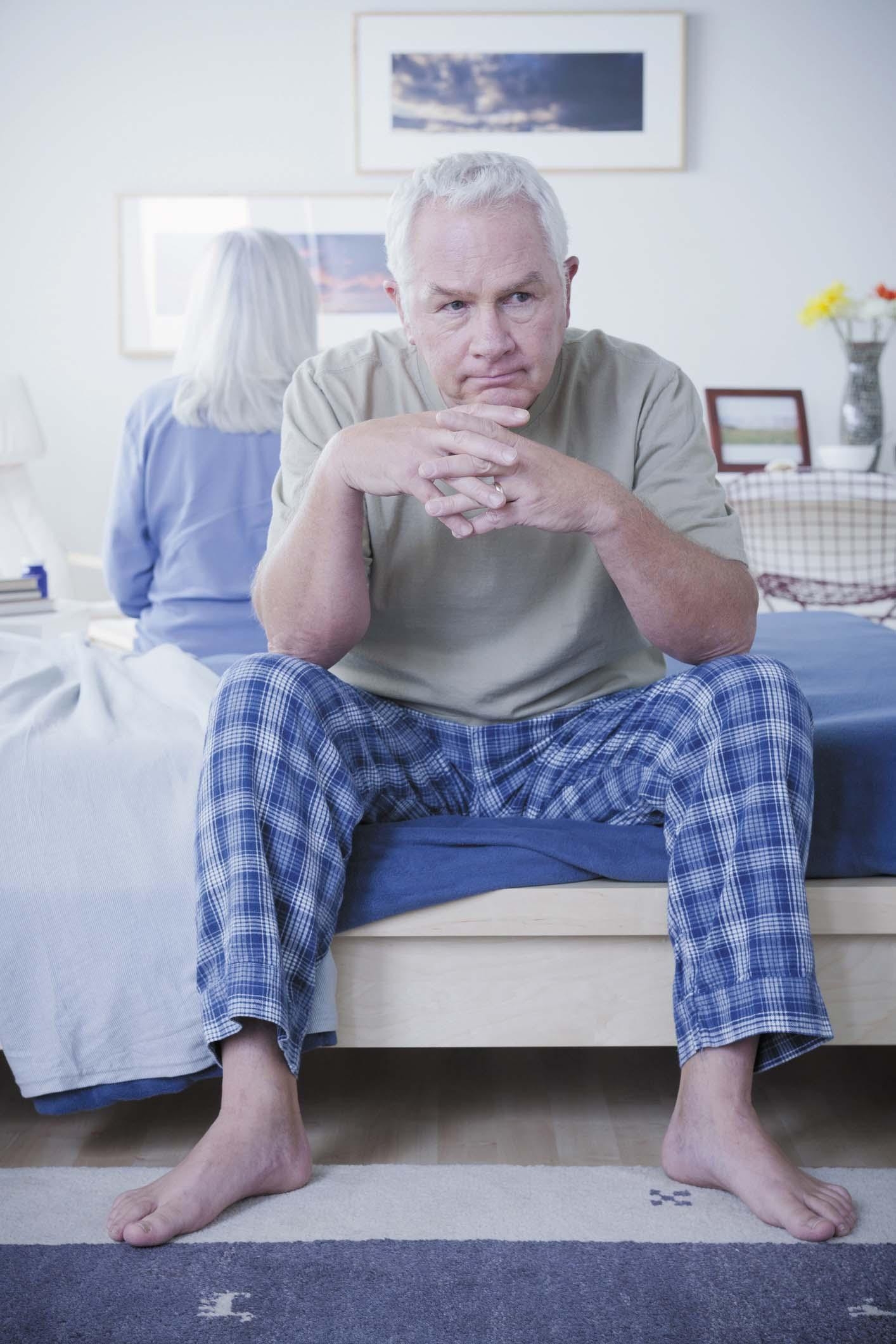
How does prostate cancer treatment affect mental health?

5 timeless habits for better health

What are the symptoms of prostate cancer?

Is your breakfast cereal healthy?

When pain signals an emergency: Symptoms you should never ignore

Does exercise give you energy?

Acupuncture for pain relief: How it works and what to expect

How to avoid jet lag: Tips for staying alert when you travel

Biofeedback therapy: How it works and how it can help relieve pain

Best vitamins and minerals for energy
Relationships & Connections Archive
Articles
Dealing with a sluggish sex drive
Men and women can experience many age-related changes and health conditions that can cause their sex drives to decline. Couples who deal with mismatched or missing sex drives should communicate about how they can work together to get back in sync. Both partners should share what they enjoy before and during sex, what issues may be hindering their sex drive, and what strategies they can try, such as recreating dating, planning time for intimacy, and exploring new ways to create romantic moods.
Solo aging: Who can you rely on?
Solo-agers are people 50 and older who aren’t married, don’t have children, and live alone. Many of them don’t have people they can count on to help them with household tasks or manage their ongoing care, if needed. While solo aging can offer perks, it can also leave older adults vulnerable to deteriorating mental and physical health. Solo-agers may count on help from siblings, neighbors, friends, community groups, or paid help. They can build their support by setting up a buddy system, staying in regular touch with loved ones, and tapping senior programs.
Working during retirement years
Continuing to work in retirement can address many specific health needs of men as they age, such as stronger social connection, better cognitive health, and a greater sense of purpose. Regular work has been linked with higher rates of happiness and a lower risk for multiple health conditions. For men who don’t want to re-enter the workforce, options like volunteering and mentoring can offer many of the same health benefits.
Unlocking the secrets of super-agers
Super-agers are people who reach their 80s, 90s, or beyond with the memory capacity of someone at least three decades younger. As people get older, certain brain regions shrink, slowing brain functions. But super-agers retain more brain volume in areas linked to memory and movement, and their brains shrink more slowly over time. Women are more likely to be super-agers because they live, on average, longer than men. Genetics also appear to play a significant role in achieving super-ager status.
An introvert's guide to socializing
An active social life is good medicine for the body and brain as it lowers the risk for many chronic diseases and protects against dementia and mild cognitive impairment. However, people who are introverts and enjoy their solitude can struggle with engagement. These individuals can benefit from socializing while maintaining their comfort levels by engaging in activities like joining social clubs and other groups, taking classes, and attending public events.
Reflecting on your remaining days
Older adults might not think too much about how they want to spend their remaining years. However, some self-reflection can help them live their final years to their fullest. Asking themselves what is most important in five areas—relationships, health, education, personal growth, and recreation—can help people recognize where their passions lie. Once they discover which goals are most important, they then can begin developing plans to meet them.
Staying socially active linked to delayed dementia diagnosis
In a 2025 study of about 2,000 people (average age 80) who were followed for seven years, about a third developed dementia or mild cognitive impairment. Being socially active seemed to delay that diagnosis for about five years.
The healing power of kindness
Acts of kindness do more than make the giver and recipient feel good—they can also bolster psychological and physical health. Research suggests kindness can improve happiness and increase social connectedness as well as reduce anxiety and lower blood pressure. Evidence also suggests concentrating good deeds into shorter time periods enhances well-being more powerfully than spreading actions out. Kind acts can include complimenting people, running errands for a neighbor, making a donation to charity, and signing up to volunteer.
Hidden battles: Keeping cancer secret
A portion of the two million Americans diagnosed with cancer each year choose to keep the news private or tell only a select few people. These patients may wish to avoid extra attention, sympathy, or different treatment; bypass burdening or alarming others; protect their job; feel in control of an uncertain situation; or sidestep judgment if their cancer is related to lifestyle choices. But opting for secrecy can pose several disadvantages, depriving patients of practical and emotional support and aggravating stress, anxiety, and depression.

How does prostate cancer treatment affect mental health?

5 timeless habits for better health

What are the symptoms of prostate cancer?

Is your breakfast cereal healthy?

When pain signals an emergency: Symptoms you should never ignore

Does exercise give you energy?

Acupuncture for pain relief: How it works and what to expect

How to avoid jet lag: Tips for staying alert when you travel

Biofeedback therapy: How it works and how it can help relieve pain

Best vitamins and minerals for energy
Free Healthbeat Signup
Get the latest in health news delivered to your inbox!
Sign Up











